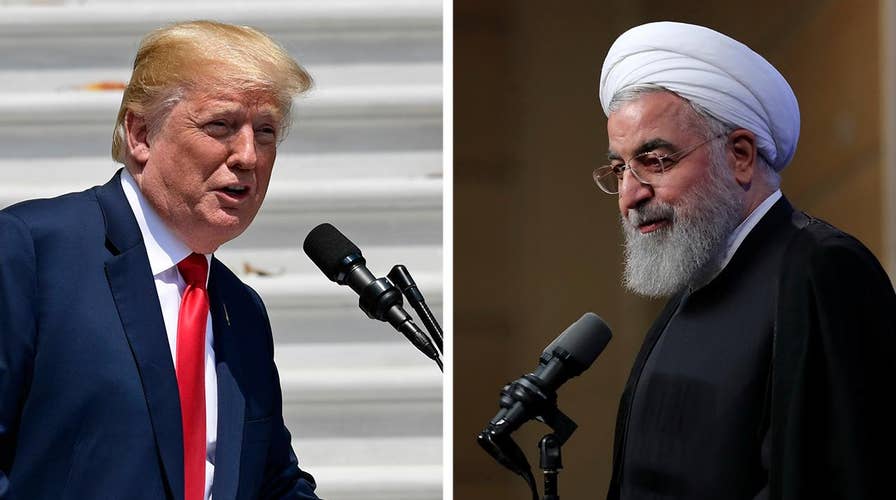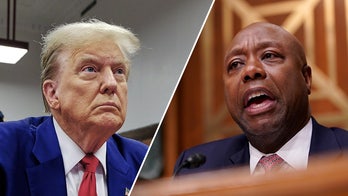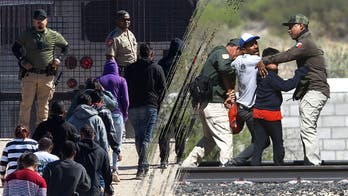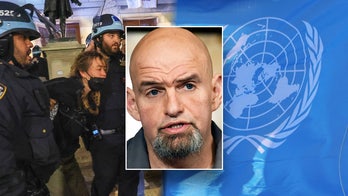US threatens Iran with strongest sanctions in history
Secretary of State Pompeo promises an historic pressure campaign against Iran; Rich Edson reports from the State Department.
WASHINGTON – The Trump administration promises to impose “the strongest sanctions in history” against Iran, urging all nations to participate in a new, aggressive campaign to economically isolate the regime.
In a Monday morning speech at the Heritage Foundation, Secretary of State Mike Pompeo detailed the administration’s policy toward Iran less than two weeks after President Trump withdrew from the Iran nuclear agreement.
Borrowing a strategy, and a moniker, from what it views as a successful economic isolation campaign against North Korea, Pompeo said the United States is planning a new “pressure campaign.”
“Our willingness to meet [North Korean leader] Kim Jong Un underscores the Trump administration’s commitment to diplomacy to help solve the greatest challenges, even with our staunchest adversaries,” said Pompeo. “That willingness has been accompanied by a painful pressure campaign that reflects our commitment to resolve this challenge forever.”
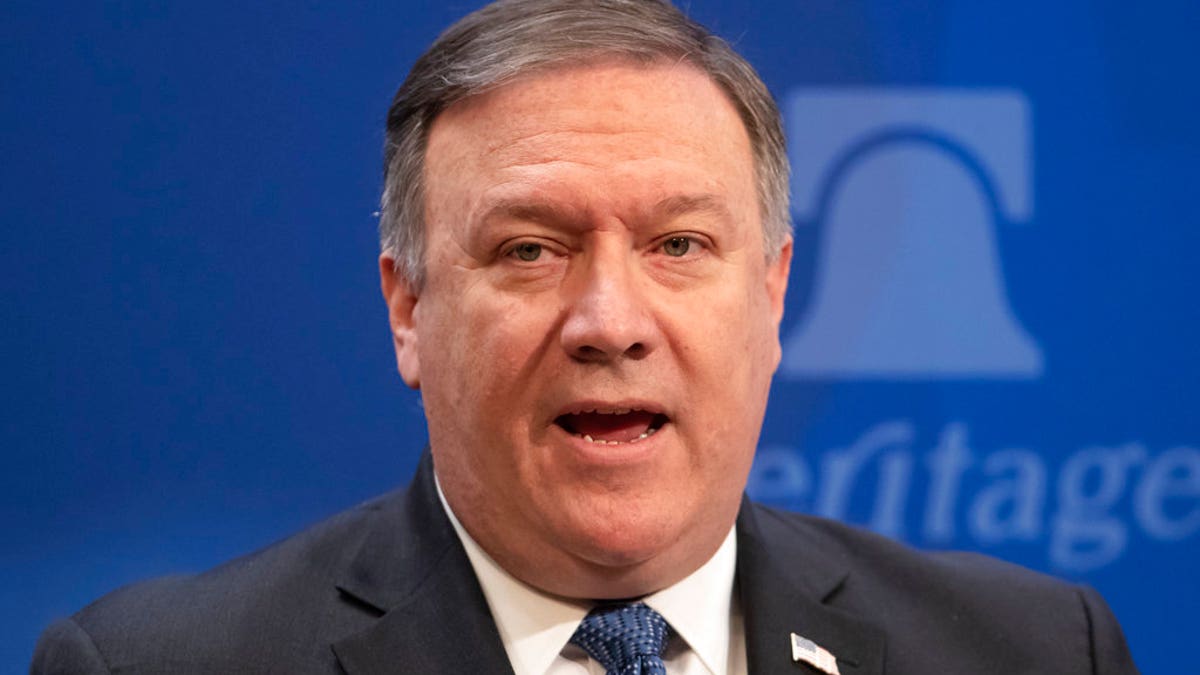
The Trump administration promises to impose “the strongest sanctions in history” against Iran, urging all nations to participate in a new, aggressive campaign to economically isolate the regime, Secretary of State Mike Pompeo said Monday (Copyright 2018 The Associated Press. All rights reserved.)
Pompeo also warned European companies conducting business with Iran that the U.S. would also subject them to economic penalties.
“We understand that our re-imposition of sanctions and the coming pressure campaign on the Iranian regime will pose financial and economic difficulties for a number of our friends,” said the secretary of state. “We want to hear your concerns … but we will hold those doing prohibited business in Iran to account. “
Like the administration’s North Korea strategy, Pompeo said the U.S. would lift sanctions and welcome Iran to the international economic system if it dramatically changed its behavior. Pompeo demanded Iran “permanently and verifiably abandon” its nuclear work “in perpetuity,” provide international inspectors “unqualified access to all sites throughout the country,” halt its ballistic missile program, release detained Americans, and end support for Middle East militant groups.
“Relief from our efforts will only come when we see tangible, demonstrated, and sustained shifts in Tehran’s policies,” said Pompeo. The secretary said the administration ultimately wants a ratified treaty.
International participation is unclear. The United States’ European allies oppose the president’s withdrawal from the Iran nuclear deal. They’re also engaging with the agreement’s remaining participants – Russia, China, Iran and the European Union – to salvage the deal without the U.S.
The Trump administration negotiated for months with Germany, France and the United Kingdom to create a supplement to the Iran agreement. The negotiators reached broad agreement on addressing Iran’s ballistic missile program and expanding nuclear inspections. They failed to settle differences on expiration clauses in the nuclear deal. The countries, however, were very close to addressing all concerns, according to a European diplomat.
